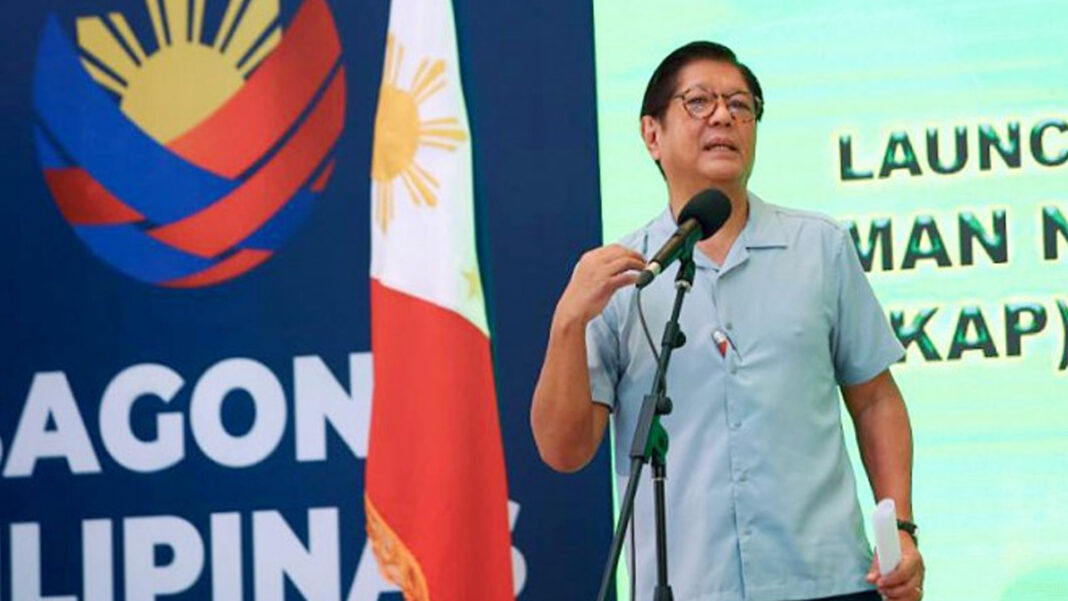President Ferdinand R. Marcos Jr. has prioritized the safeguarding of public health with the establishment of community health facilities and expansion of health benefit packages covering many life-threatening illnesses.
In his fourth State of the Nation Address (SONA) on Monday, Marcos said a total of 53 Bagong Urgent Care and Ambulatory Services or BUCAS Centers have been established in 32 provinces across the country.
About 27 of these centers are in Luzon, nine in Visayas, and 17 in Mindanao.
According to the Department of Health, over a million Filipinos have received medical services through BUCAS centers from March 2024 to March 2025.
These outpatient health services include CT scan, ultrasound, X-ray, laboratory tests and diagnostics.
“Asahan ninyo, marami pa ang ating bubuksan na BUCAS (Expect that more BUCAS centers will be opened soon),” Marcos said.
“At sa kauna-unahang pagkakataon, ang bawat bayan po sa Pilipinas ay mayroon nang doktor. Mayroon nang magiging tagapag-alaga ng kalusugan ng mamamayan sa inyong lugar (For the first time ever, every town in the Philippines now has a doctor. Someone is already responsible for safeguarding your community’s health).”
He also highlighted the newly-launched YAKAP (Yaman ng Kalusugan Program Para Malayo sa Sakit) Caravan which would provide free medical check-ups, laboratory tests, and medicines.
On July 25, the Philippine Health Insurance Corporation (PhilHealth) launched the YAKAP — an enhanced and expanded version of the Konsultasyong Sulit at Tama or Konsulta Program.
YAKAP is a more comprehensive primary care package that covers additional drugs and medicines, more laboratory tests and includes cancer screening at accredited facilities nationwide.
It is designed to support Filipinos at every stage of life, prioritizing their health and well-being by promoting early detection, preventive care, and access to essential outpatient services and medicines.
“Pinaspasan na natin ang pagpapabakuna ng mga bata (We have also accelerated the vaccination of children),” Marcos said.
He also directed the DOH to complete the immunization program as soon as possible to meet the country’s vaccination target.
Improved health benefit packages
Citing that Filipinos are all PhilHealth members, Marcos assured the public that more comprehensive coverage is now available for illnesses prevalent in the country.
Among the enhanced benefits is full coverage for major heart conditions, including treatment for heart attacks, open-heart surgeries, and heart valve repair or replacement procedures.
Cancer patients will also benefit from expanded assistance through the Cancer Assistance Fund, which helps cover treatment expenses.
Funding has also been allocated for vaccines against the human papillomavirus (HPV), a known cause of several types of cancer.
For cancer cases not covered by existing PhilHealth packages, the government has earmarked an additional PHP1.7 billion for the procurement of essential medications.
Patients undergoing dialysis treatments will now enjoy free sessions — up to three times a week — for the entire year, inclusive of necessary medicines.
Meanwhile, for those requiring kidney transplants, PhilHealth has raised the benefit ceiling from PHP600,000 to PHP2.1 million.
Post-transplant care, including medications and follow-up treatments, is now also covered.
For children diagnosed with severe dengue, the coverage amount has been increased to PHP47,000.
The limit for cataract surgery has likewise been raised from PHP16,000 to PHP187,000.
PhilHealth now also includes a wide range of outpatient services under its coverage. In emergency situations, the public is urged not to hesitate to seek hospital care, as PhilHealth will shoulder the expenses.
Marcos said pediatric eye checkups, vision grading, and treatment for malnutrition are now covered as well, and persons with disabilities will also benefit from expanded support including therapy and rehabilitation services and essential assistive devices to aid their daily functioning.
To improve efficiency in healthcare delivery, the reimbursement process for hospitals and clinics is being expedited, ensuring that facilities can continue providing uninterrupted care to patients.
Meanwhile, the Medical Assistance Program remains available for those whose hospital bills exceed their means.
Since the beginning of the Marcos administration, more than 11.5 million Filipinos have received aid through these expanded health initiatives.
To further streamline access, Marcos said the medical assistance process will soon be integrated into the government’s eGov mobile application. (PNA)


